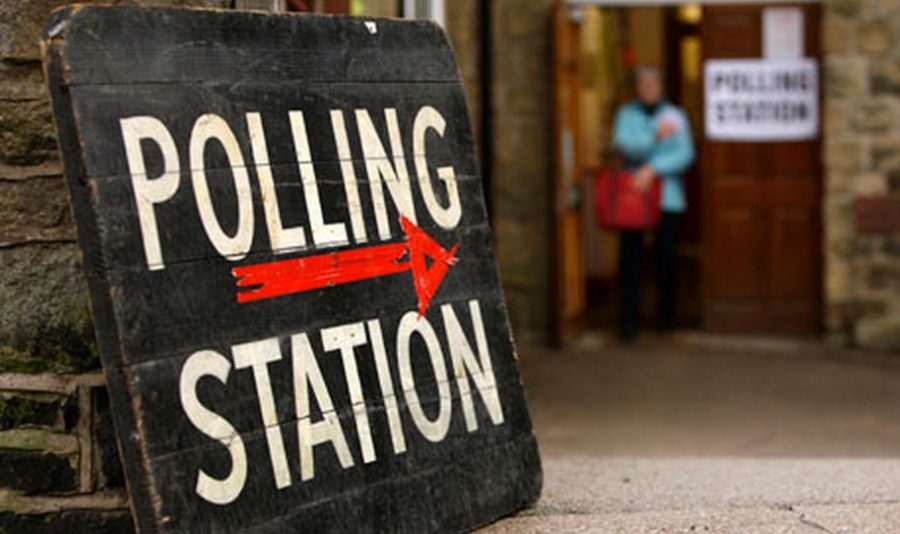Winston Churchill, perhaps the greatest political leader of the 20th century, once said: “The best argument against democracy is a five-minute conversation with the average voter.” In a political and cultural era in which information regarding nearly every subject is widely available at the click of a button, one would think that Churchill should rest easy in his grave; the “average voter” has more access to knowledge than ever before, making their voting decisions far more informed than was previously the case. However, I would suggest that, in an era where a third of Americans cannot name a single branch of government, many people, regardless of access to information, rarely understand anything of substance regarding the government and its guiding policies.
One example of the uninformed nature of voter rears its ugly head when discussing gun policy. Polling shows that 81 percent of Democrats and 47 percent of independents would favor banning semi-automatic weapons. Members of the left commonly suggest that a ban on these semi-automatic weapons could reduce gun violence and particularly school shootings. However, do those same people who support a semi-automatic weapons ban even know the difference between a semi-automatic weapon and a fully automatic one? Especially in the wake of school shootings, there has been a need to clarify the difference: An automatic firearm continuously fires rounds as long as the trigger is pressed or held and there is ammunition in the magazine/chamber. A semi-automatic firearm fires one round with each individual trigger-pull. If people actually knew this distinction, perhaps they would be more hesitant to attempt to enact a ban on weapons that account for almost half of all new firearms bought in recent years.
Something that uninformed voters fail to understand is that policy proposals often have positive and negative aspects. Take, for example, the legalization of marijuana. In 2012, Colorado legalized marijuana with Amendment 64, which won in the polls in a 55-45 majority. A number of other states have since hopped on the marijuana legalization bandwagon, including Maine, California, Nevada and my home state of Massachusetts.
The legalization of marijuana has many positive aspects, such as the potential reduction of prison populations for a crime that is relatively benign when compared to violent offenses. However, pro-legalization voters should also consider some of the negative aspects of such a legislative action. According to the Insurance Institute for Highway Safety, Colorado experienced a 14 percent increase in automobile collision insurance claim frequency once retail marijuana sales became legal and plentiful, a rate that was higher (no pun intended) than control states around Colorado where marijuana is not legal. There seems to be a misguided notion that driving while high is not as dangerous as driving while drunk, and this has clearly affected policy in many states.
I won’t only pick on the left here. Many Trump voters may be uninformed about the potential negative economic impacts of his proposals. During the 2016 campaign, Trump promised that he would place tariffs on Chinese goods in retaliation for their so-called unfair trading practices of the past. Economists did not like his proposal. In fact, over 1100 of them signed an open letter to the president and Congress decrying the use of tariffs as antithetical to deep-seated free-trade practices that have contributed to the United States’ rapid economic growth in recent years. According to Economics professor Art Carden, “tariffs are classic examples of policies that hurt when they’re alleged to help… by raising steel prices, tariffs increase the costs of important inputs into construction, automobile manufacturing and other industries. The buildings that aren’t built and cars that aren’t made—and the jobs that don’t exist as a result—are impossible to actually see, but they’re real nonetheless.”
Trump is good at appealing to his base with this rhetoric and with his recent enactment of tariffs. However, when so many economists who have far greater expertise in their field than the president disagree with his policy proposals, something may be off with the policies themselves. Trump’s voters are just as susceptible to tribalism as those on the left, and every informed voter should be wary of ignorance regarding policies that affect the entire country.
Democracies are fickle beasts. We take for granted our ability to vote in elections for candidates that we feel represent our interests, something that humans have not had throughout history until very recently. Because we take this for granted, we often don’t fulfill our side of the social contract. In order to vote, we should be informed citizens who know at least on a baseline level how policies will affect different parts of our populations. Google is an extraordinary tool; we should use it to further our knowledge in order to vote with our brains, rather than with our hearts. Before you vote, please, please, please know the potential consequences of your decisions.
Greg Fournier is a Collegian columnist and can be reached at [email protected].




















Em • Sep 7, 2018 at 11:25 am
Great piece, Greg! Being informed is SO critical when it comes to voting.